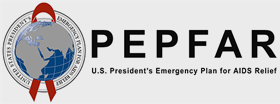Going the Extra Mile at the Last Mile
Philip Domi is a health worker at Sasekpe Health Center in the eastern Volta Region of Ghana.
“We always thought that having the commodities available at the facility was all we needed to be able to provide uninterrupted services to our clients. However, with the outbreak of the COVID-19 pandemic in Ghana, we observed that attendance to the facility was gradually declining [from about 40 a day to 10 or less], and this also affected the uptake of family planning (FP) services. We had clients who were due to come for their FP services, yet when we contacted them, they were unwilling to come to the facility for fear of contracting COVID, either at the facility or while using public transport to commute to the facility. We knew we had to adopt a strategy, even if it meant going the extra mile, so we decided to go to the community to render our services.
“Even with that, we were faced with yet another challenge. People were not comfortable with us coming to their community because [they believed] we carried COVID-19. However, since the health keepers started their advocacy in December 2020, uptake of FP is gradually improving. Because they are from the community, people trust them and feel safe interacting with them. Training and equipping them with the right information about FP is helping to demystify some of the misconceptions they had about FP usage. Now clients are able to access FP services it the comfort of their homes without ‘risking’ to travel to the facility. This has helped us a lot because at the end of the month we receive consumption data from them, and we consolidate it with our data. Also, sometimes they are able to refer clients who require long-term methods to the facility. Now we know what last mile really means; it is being able to provide services to the clients whenever and wherever they need them.”






